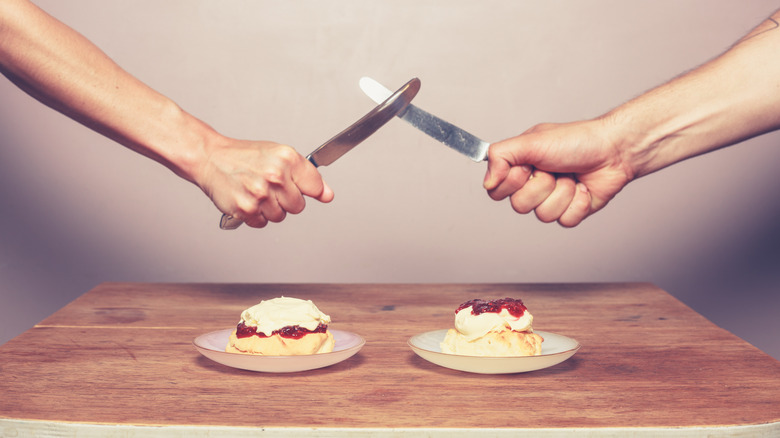Why Putting Your Elbows On The Table Is Considered Rude
Back in 2018, HuffPost writer Brie Dyas complained that Americans' table manners were going down the drain. There were multiple reasons for this, one of which was almost certainly the ubiquity of cell phones and mobile devices, but in the main, suggested one of Dyas' contributors, was the growing prevalence of "me culture" and of not thinking about others.
A generation or two ago, of course, things were different, and a display of bad table manners was, at the very least, an occasion for raised eyebrows or judgmental looks. If you were a child, it could mean a quick trip to the corner. Many of the seemingly quaint and arbitrary rules that govern how Westerners are expected to act at the table, though seemingly pointless in the 21st century, emerged at a time when the stakes were considerably higher. This is particularly true of putting your elbows on the table. There was a time when breaking that rule could lead to someone's death.
Breaking the imaginary boundary
You may be surprised to learn that the prohibition against putting your elbows on the table goes back not hundreds, but thousands, of years. The practice is warned against in the Old Testament Book of Sirach (via the United States Conference of Catholic Bishops).
But why this seemingly arbitrary rule? Readers' Digest quotes historian Margaret Visser, author of "The Rituals of Dinner: The Origins, Evolution, Eccentricities, and Meaning of Table Manners," who says that centuries ago, the possibility of violence erupting at the table was always lingering just below the surface, and so this system of table manners evolved to keep things under control. In the case of keeping your elbows off the table, it was a sign of respecting the personal space of your fellow diners. Visser likened the place setting to a metaphorical boundary, and putting your elbows on the table broke that boundary, possibly making other diners nervous. "People got scared when you started having bad manners. They realized the taboo was not functioning and you didn't know what this person was going to do next," she said.

